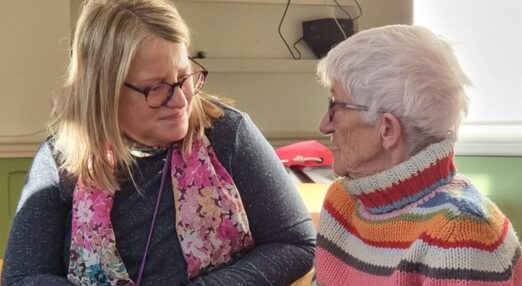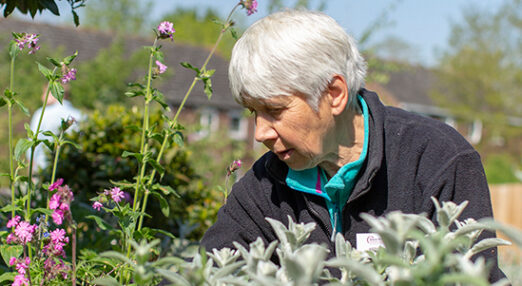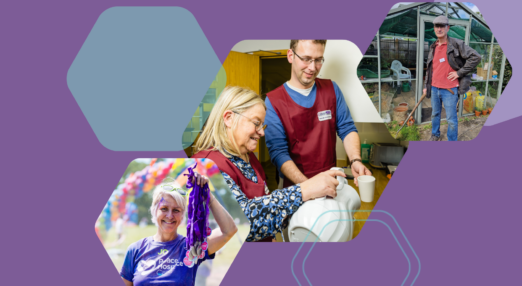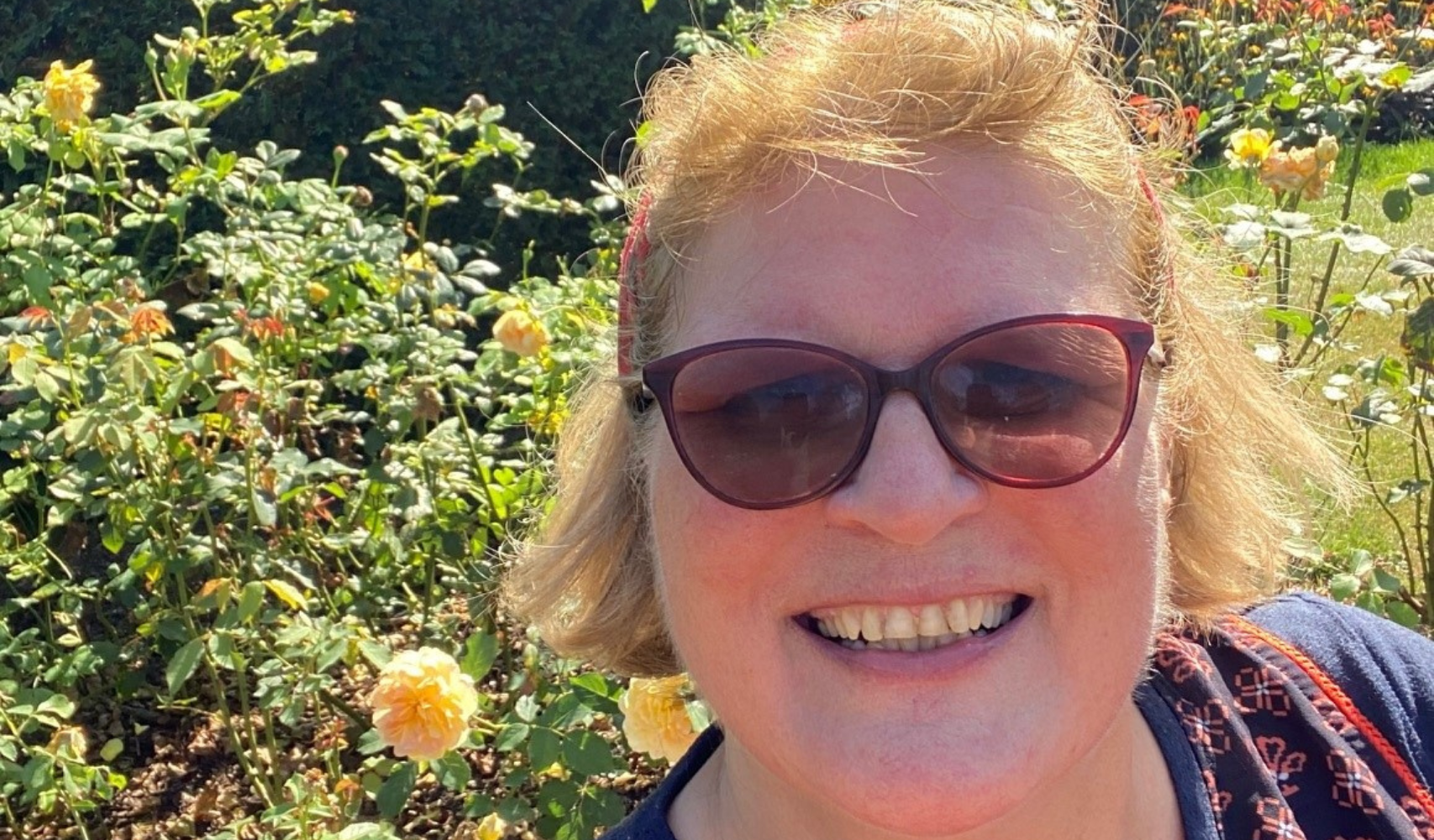After taking early retirement from her nursing career due to ill health, Sara started volunteering with Peace Hospice Care in 2017, as part of its Compassionate Neighbours scheme. She’s also been a volunteer with our Supporting Hands service for around 18 months.
Both schemes are about supporting patients and their families, as well as freeing up clinical time, Sara explains. “For example, at Peace Hospice you might sit with someone in the In-Patient Unit for a couple of hours. Sometimes the nurses will request this; sometimes families do. Or you might visit a patient at home to give family members a chance to go out. Respite visits can make a big difference to families and carers.”
Some visits are purely social, with patients benefitting from a chat over a cuppa, or doing a jigsaw together. Sometimes Sara would take her community members out and about.
“Often, it’s about helping people – patients and their carers – maintain contact with their local community. And sometimes it’s about helping people build up their confidence after an illness or a bereavement,” she explains. “I supported one lady during the pandemic,” she recalls. “Her condition and its treatment made her more vulnerable to respiratory complications and she understandably got more and more anxious about going out. It took about 18 months of chats and visits before she felt confident enough. Now we meet for lunch every six weeks or so. It’s nice to see her grow.”
Building a rapport with patients and families has been a big draw for Sara. She still supports a bereaved gentleman whom she visited while his wife was ill and supported at home by Peace Hospice Care. “He’s happy for most of the contact to be by phone now. We’ll chat for a bit, and I’ll let him know about social events and Compassionate Cafés, which are up and running in local areas for us to go to with our patients we support. We meet there for a good chat, and I can signpost him to relevant organisations if needed.”
Sara explains that she finds the Supporting Hands scheme more structured, but just as beneficial to patients and their families. “Often, you’re matched with a patient as they’re approaching end of life and receiving hospice care at home. You’re asked to visit either weekly or fortnightly, six to eight times. And after each visit, you ring in to say you’ve left and then you submit a report through a secure online system. It’s good because it means anyone involved in that patient’s care can read your notes.”
Sara gets updated over the phone or through a secure email account about the patients she supports, but she’ll often ring ahead if she hasn’t visited for a while to find out the latest.
Supporting Hands volunteers receive introductory training, as well as regular group supervision online and in person. “The training’s really good and very thorough,” says Sara. “You learn new skills, how to talk about death and dying, and how to help support children when a family member is ill.
“Nine times out of ten though, patients don’t want to talk about their illness with me. One man I’m supporting lives by himself and enjoys talking about his past when I visit.
“It’s a privilege to be welcomed into people’s homes and to meet their family. I enjoy it a lot and I’d recommend it to anyone thinking about volunteering. The roles are flexible, you commit to the number of visits you can manage each week, and the charity works hard to find a good match. For example, I’m disabled and so I need to avoid heavy lifting or too much housework when I’m supporting families.”
As a longstanding volunteer with experience of how Compassionate Cafés work, Sara’s been asked to help launch a new Compassionate Café in Wigginton. She’s pleased to develop her volunteering role with this natural progression, as she’s seen first-hand the difference the cafés can make to people’s lives.
You may also be interested in...
-

Compassionate Cafés
Our Compassionate Cafés are drop-in sessions, in local cafés and venues, providing a welcoming space for people affected by any type of loss.
Read more
-

Supporting Hands
The Supporting Hands service matches volunteers to patients and carers in need of companionship or practical support with everyday tasks.
Read more
-

Volunteering
Make a difference in your local community when you join the Rennie Grove Peace volunteering team
Read more

